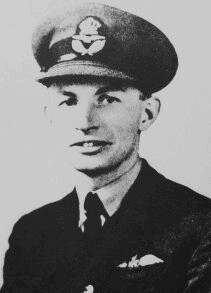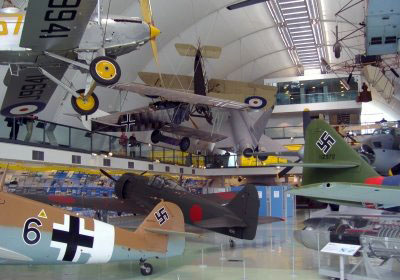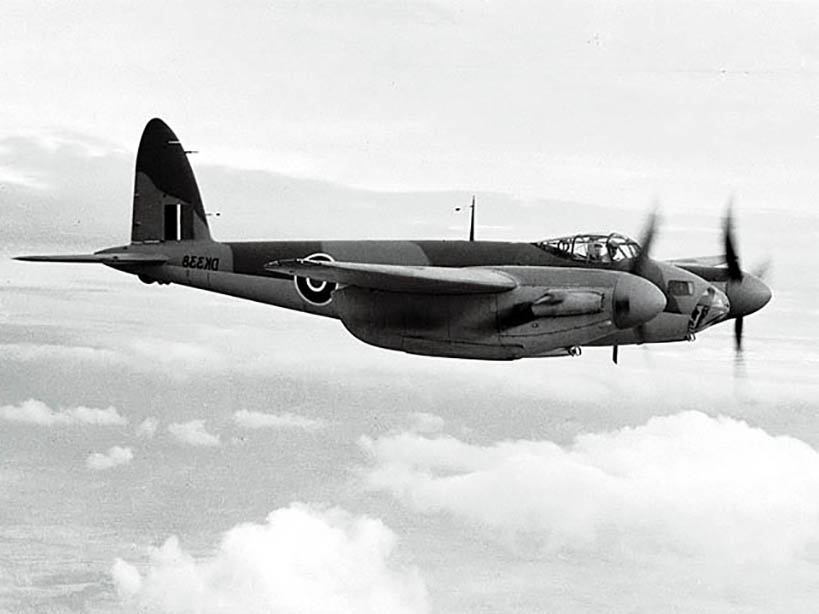Dowland, John Noel
- Date of birth:
- November 6th, 1914 (Lewisham/Londen, United Kingdom)
- Date of death:
- January 13th, 1942 (Luqa, Malta)
- Buried on:
- Commonwealth War Graves Capuccini (Kalkara)
Plot: E. Grave: 14. - Service number:
- 33239, Royal Air Force
- Nationality:
- British
Biography
Together with his observer Pilot Officer Robert Victor Gridley, John Noela Dowland took part in an air raid at Pantellaria on January 13th, 1942 in their de Havilland Mosquito W4062, No. 62 Squadron. Damaged by anti-arcraft fire, the plane crashed while attempting to land on Luqa, Malta. Both men were killed.
Promotions:
?: Flight Cadet;
December 14th, 1935: Pilot Officer;
June 14th, 1937: Flying officer;
June 14th, 1938: Acting Flight Lieutenant;
June 14th, 1939: Flight Lieutenant;
September 1st, 1940: Squadron Leader (temporary);
?: Wing Commander (temporary?).
Career:
1935: Royal Air Force College, Cranwell.
Do you have more information about this person? Inform us!
- Period:
- Second World War (1939-1945)
- Rank:
- Squadron Leader
- Unit:
- No. 69 Squadron, Royal Air Force
- Awarded on:
- January 7th, 1941
"In February, 1940, Squadron Leader Dowland succeeded in removing an enemy bomb from a steamship. The bomb was extremely difficult to inspect and handle as it was wedged with its nose penetrating through the main deck. In June, 1940, this officer performed a similar duty with the same efficiency and promptitude on board a trawler. He has displayed conspicuous courage and devotion to duty in circumstances of exceptional danger and difficulty."
Join Recommendation with L.H. Harrison:
‘On 12 February 1940, the S.S. Kildare arrived in Immingham Docks with a 250 Kilo German bomb wedged half-through the main deck. Flight Lieutenant Dowland inspected the bomb and realising that the fuse was of a type of which no previous knowledge was available, ordered his men below. Civilian Armament Instructor Harrison, however, remained with him while the bomb was defused and gave valuable assistance.
On 22 March and 7 June 1940, he gave similar assistance in unarming and rendering safe unexploded German bombs and a new type of German depth-charge in ships off Grimsby.
On all three occasions Mr. Harrison displayed conspicuous courage and devotion to duty in circumstances of exceptional danger and difficulty. He has also through his own initiative and private study become an authority on the fuse and exploder systems in German bombs.’
- Period:
- Second World War (1939-1945)
- Period:
- Second World War (1939-1945)
- Period:
- Second World War (1939-1945)
- Period:
- Second World War (1939-1945)
- Period:
- Second World War (1939-1945)
- Period:
- Second World War (1939-1945)
Sources
- Photo 1: George Cross Database
- - The London Gazette, Issue 34250, dated 28th January 1936
- The London Gazette, Issue 34423, dated 3rd August 1937
- The London Gazette, Issue 34537, dated 2nd August 1938
- The London Gazette, Issue 34642, dated 4th July 1939
- The London Gazette, Issue 34949, dated 20th September 1940
- The London Gazette, Issue 35037, dated 7th January 1941
- George Cross Database
- Air of Authority - A History of RAF Organisation
- Aviation Safety Network
- John N Dowland GC - victoriacross











